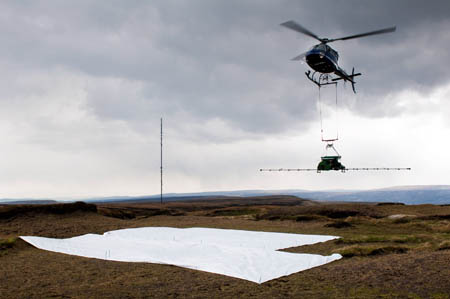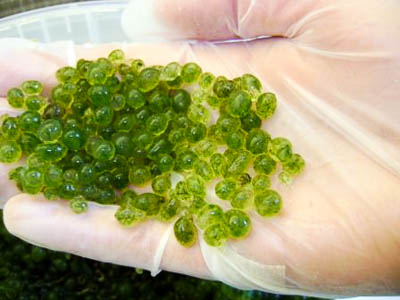A helicopter was used to drop vital moorland moss by national park staff in an effort to reverse decades of erosion.
The pioneering project uses sphagnum moss that has been propagated in laboratories and is then distributed from the air across peat moorland in the Peak District. If successful, the trial will be extended to other areas of the national park and the South Pennines in more than 800ha (2,000 acres) of upland blanket bog.
The plant – dubbed the critical moss by park workers – was in danger of disappearing from the peat moorland. Pollution from nearby industrial towns and cities and a succession of moorland fires have put the moss at risk.
But the Peak District National Park Authority said the tiny plants are a vital building block of the blanket peatlands. A spokesperson explained: “As it partially decomposes in waterlogged conditions it forms layers of peat, the basis of the very special habitat that develops.
“Unfortunately sphagnum moss has been largely lost from the Peak District primarily due to pollution and wildfires. This reduces the contribution that the blanket peats can make to carbon storage that can help combat climate change as well as their wildlife value.”
The pilot scheme is being run by the Moors for the Future Project. Conservation works manager Matt Buckler said: “All our works to date have been about stabilising the ground until peat forming vegetation can develop.
“Sphagnum is the most important peat-forming plant and the glue that holds the whole blanket bog community together and so this project is probably the most important innovation ever in moorland restoration techniques.”
Jon Stewart of Natural England said: “England’s moorland blanket peatlands are a crucial buffer against climate change through their role as a carbon store but have been extensively damaged by centuries of inappropriate management and pollution.
“We have to stop the rot and ensure that peatlands are properly looked after as one of our most precious environmental resources.
“This project is seeking to understand and demonstrate how we can do this in the Peak District. It is about restoring the natural bog forming species to the extensive blanket bogs in one of our best loved National Parks.
“We want the peatlands to be as healthy as possible so they can support their special wildlife, provide inspiration and enjoyment and function as an effective carbon store.”
The trial has been funded by Natural England and the Co-operative and has involved Manchester Metropolitan University and Micro Propagation Services to develop the groundbreaking techniques.

